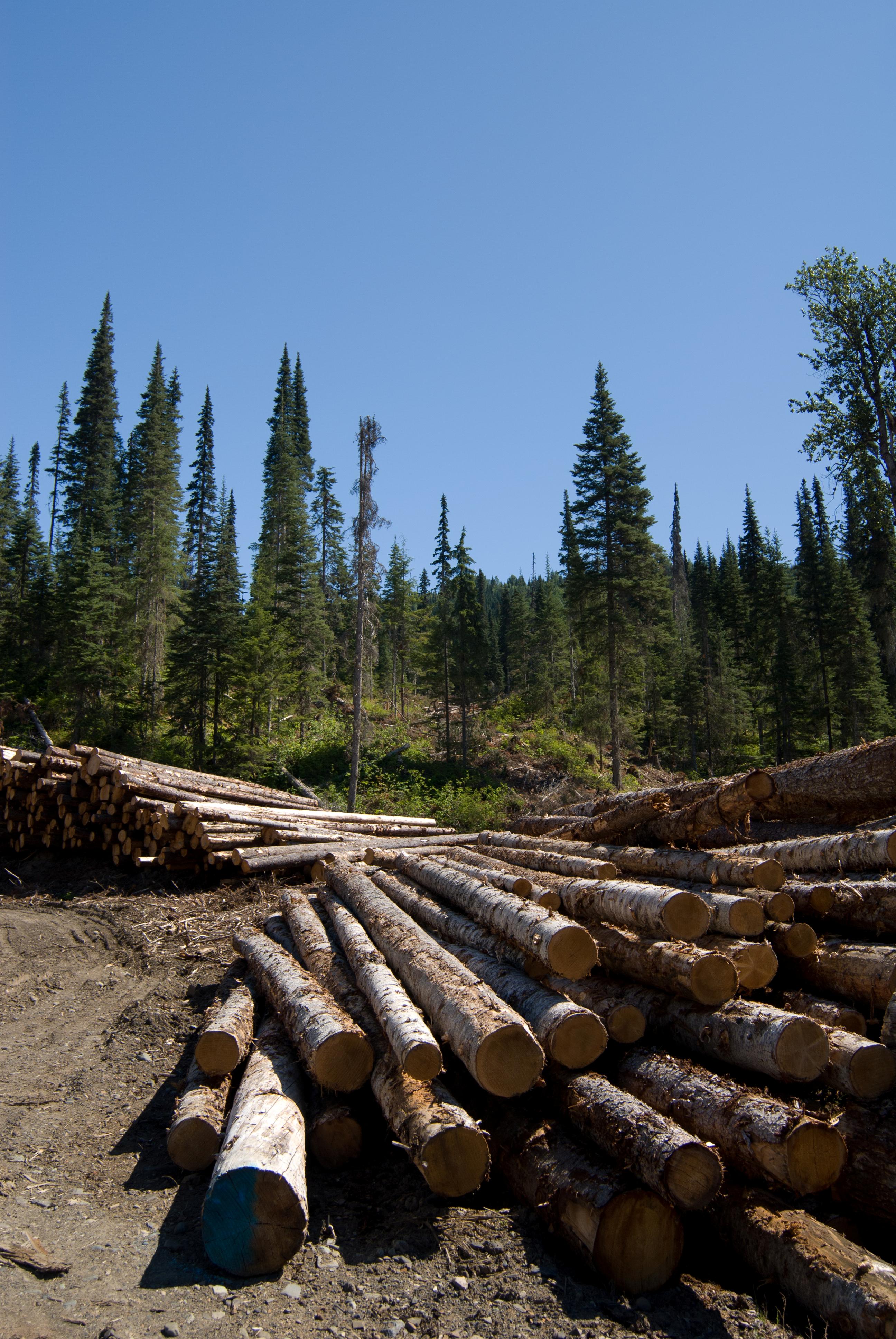Scientists, practitioners and decision-makers from around the world meet in Vancouver, Canada from 27 to 30 August 2013 to discuss the implications of globalization on forests and their management.
PDF of Press Release for download
(Vancouver/Vienna, 27 August 2013) Globalization is changing forests and the forest sector. Increases in international trade and investments have altered the global business environment for forestry. The growing world population moving towards nine billion by 2050, economic growth, rising resources demand and increasing environmental concerns are other drivers fostering transformation in forestry and the management of forests. New players enter the global market, and the bio-economy –– the production of ‘green’ products from renewable resources –– is gaining weight. From 27 to 30 August 2013, more than 100 representatives from research, industry and government will discuss how global trends influence forest resources, and how new opportunities for forest entrepreneurs and a more resource efficient society can be harnessed. The Conference has been organized by the University of British Columbia (UBC), Faculty of Forestry, on behalf of the Task Force “Resources for the Future” of the International Union of Forest Research Organizations (IUFRO).
According to IUFRO, forestry production has declined in recent years in countries with a long tradition in forest industry, such as Canada, the United States, Sweden and Finland. “In contrast, the markets and investments in the forest industry’s production capacity are growing rapidly in emerging economies, such as China, India, Russia and Latin American countries”, says John Innes, Dean of UBC Faculty of Forestry and IUFRO Task Force Coordinator.
Today around half the world’s population is middle class, and experts expect further growth in this group. As a result of this and other global forces, consumption is increasing, and will lead to long-term resource scarcity. “This creates the conditions for the emerging bio-economy that seeks to replace non-renewable resources with well-managed renewable resources, and that provides solutions to environmental and social problems”, says Dave Cohen, Professor of the UBC Department of Wood Science. Changes in both the global business environment and uses of some paper products are buffeting North American and European firms in the forestry sector. Traditional forest products companies are turning to new business opportunities. “Today’s new economic reality is the emerging bio-economy, which is the economic face of sustainability”, says Cohen.
Firms have responded in many ways. Empirical research has shown that there are numerous approaches to adapt to changing markets in both Europe and North America. For example, firms have started to explore creating sustainable bio-refineries. They have shifted from producing pure wood products to forest products, including environmental services, forest recreational opportunities, and green certification. Some have also turned to novel bioproducts making use of new technology (e.g. nano crystalline cellulose). Others have moved into bio-energy through cogeneration and ethanol production.
The increasing use of renewable energy from forest biomass reflects a general trend. “Today, 30 of the Fortune 100 companies are invested in the production of bio-fuels and bio-based materials, or their distribution. Since 2005, roughly $20 billion have been invested in renewable energy projects in Canada, and over $920 billion at the global level”, says Don Roberts, President and CEO of Nawitka Capital Advisors, a Canadian consulting company in the renewable energy, clean technology and forest product sector. According to Roberts, the emerging green economy is creating a space for forest product firms to substitute fossil-fuel based products with their bio-products, “but movement to the bio-economy has not yet catalyzed the transformative changes required to reinvigorate parts of the forest products sector”.
The customers’ needs for forests products have changed considerably over the last few years also under the pressure of environmental concerns, climate change and adaptation needs. “The forest sector represents a unique opportunity to meet those needs with a wide range of bio-products, including energy, chemicals and materials, e.g. for the construction sector and building systems. However, even with unique attributes, forest bio-products cannot skip the rules and challenges that any innovation has to face to be commercially successful”, warns Jean Hamel from FPInnovations, a Canadian non-profit organization for scientific research and technology transfer.
Globalization has also resulted in a rapid increase in plantation forests especially in Latin America and Asia. Planted forests are long-term investments that require awareness and diligence in policy and planning, but particularly in management practices in order to avoid negative impacts and maximize their benefits.
“Globalization is having major impacts on forests and forestry. The Conference Resources for the Future aims at focusing the international forest research community on finding the right responses to recent developments and, at the same time, assessing potential implications on the future of forests and forestry”, says Alexander Buck, IUFRO Executive Director.
Conference of Task Force “Resources for the Future”
27-30 August 2013, Vancouver, Canada
Information on the program: http://iufro2013.forestry.ubc.ca/
Media contact:
Gerda Wolfrum, International Union of Forest Research Organizations (IUFRO),
wolfrum(at)iufro.org
################
The International Union of Forest Research Organizations (IUFRO) is the only worldwide organization devoted to forest research and related sciences. Its members are research institutions, universities, and individual scientists as well as decision-making authorities and other stakeholders with a focus on forests and trees. www.iufro.org
University of British Columbia and Faculty of Forestry
One of the world’s leading universities, ranking consistently among the 40 best, the University of British Columbia creates an exceptional learning environment that fosters global citizenship, advances a civil and sustainable society, and supports outstanding research to serve the people of British Columbia, Canada and the world. UBC has 58,000 students, 15% of them international from over 149 countries and research funding of ~$590 million/year. www.ubc.ca
The Faculty of Forestry at the University of British Columbia is one of the world’s leading forestry schools, offering a range of programs related to the science, art and practice of managing diverse ecosystems and landscapes, and the products and services that they generate. The Faculty programs are intended to meet the growing demand for experts in conservation, forest sciences, forest management and wood sciences. (http://www.forestry.ubc.ca/)


Leave a Reply